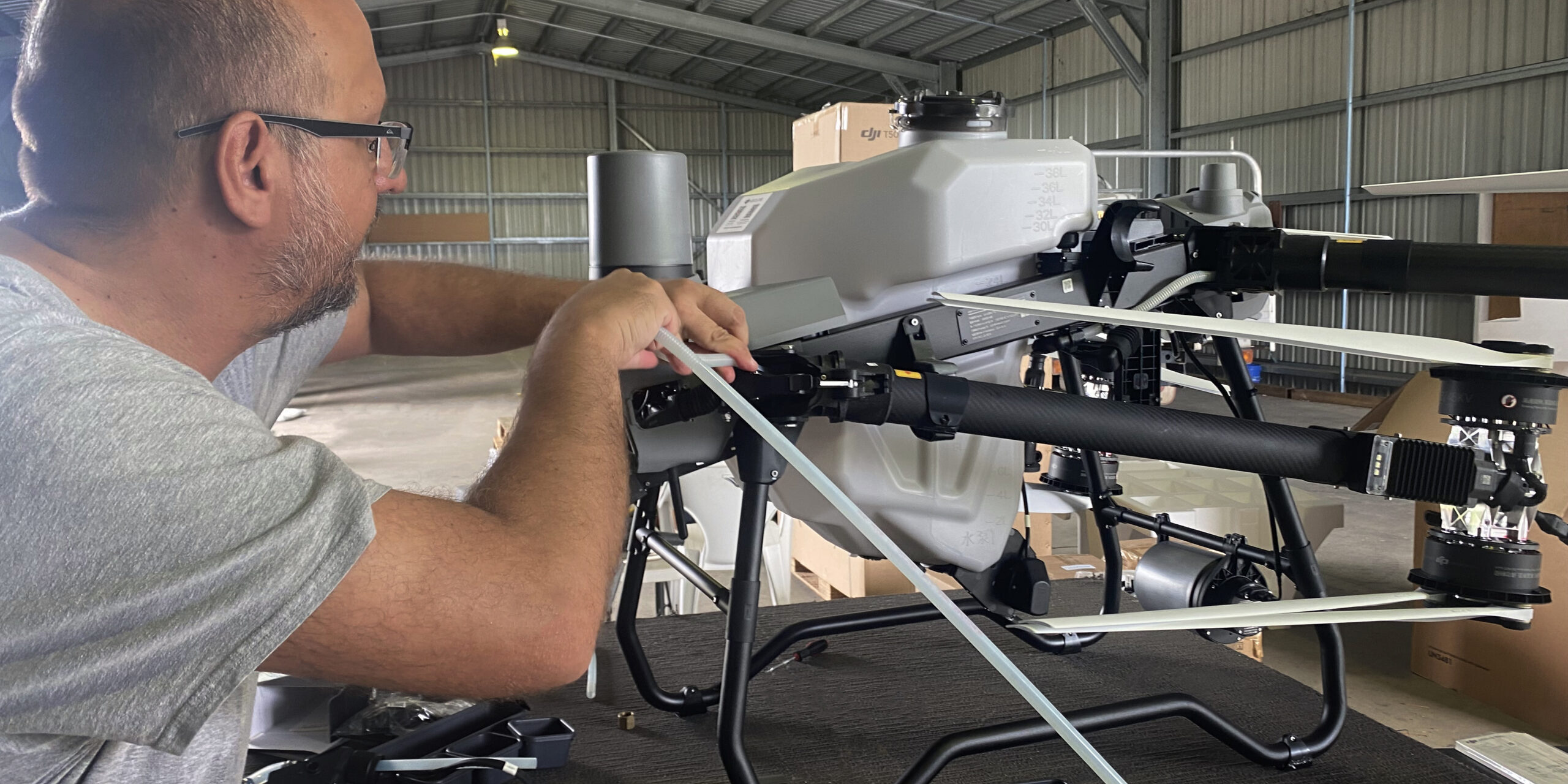Why Drone Maintenance Matters
Whether you’re spraying sugarcane in Ingham or mapping banana crops near Tully, your drone is a vital asset. Regular maintenance ensures safe flight performance, reliable data collection, and fewer costly repairs. At NQ Aerovation, we provide expert drone repair services and preventative maintenance programs to help operators keep their DJI Agriculture drones in perfect condition.
1. Inspect Propellers Before Every Flight
Propellers are critical for stability. Look for chips, cracks, or warping and replace them immediately if damaged, as even minor defects can affect flight control or efficiency.
2. Keep Motors and Vents Clean
Dust and crop residue can build up in motors after spraying or field work. Use compressed air or a soft brush to clean vents and moving parts.
3. Calibrate Your Sensors Regularly
Calibrating the compass, IMU, and gimbal ensures flight accuracy and stable footage. Drones like the DJI Agras T50 make calibration easy with on-screen guidance.
4. Update Firmware and Controller Software
Firmware updates often include improved flight control, new features, and safety fixes. Before heading to the field, always check for the latest firmware via DJI Assistant or the DJI Agriculture App.
5. Store Batteries Correctly
Battery care is essential for performance and longevity. Avoid over-discharging LiPo batteries and store them at 40–60 % charge in a cool, dry environment.
6. Protect Your Camera and Gimbal
Keep lenses clean and always use protective caps during transport. For high-end drones like the DJI Agras T100, protecting imaging sensors ensures accurate crop data and clear aerial footage.
7. Check for Loose Connections
Inspect cables, landing gear, and spray systems after every operation. Vibrations and repetitive use can loosen screws or fittings.
8. Avoid Extreme Weather Conditions
While DJI Agriculture drones are built for rugged use, avoid flying in heavy rain or high winds. North Queensland’s humidity can accelerate corrosion, so wipe your drone dry after each mission.
9. Conduct Regular Performance Tests
Before major spraying runs, perform short test flights to verify signal strength, GPS lock, and spray consistency. Record flight logs to monitor battery performance over time.
10. Schedule Professional Servicing
Even the best maintenance routines benefit from a professional inspection. At NQ Aerovation, our technicians perform detailed system diagnostics, part replacements, and firmware health checks. Book a drone service or repair to ensure your UAV stays airworthy and compliant.
Common Drone Repair Issues and How to Avoid Them
Some of the most frequent problems we see include flight instability from bent propellers, shortened battery life due to over-charging, signal interference from poor calibration, and camera malfunction caused by moisture exposure. Preventing these issues saves you both downtime and replacement costs.
Recommended Tools for DIY Maintenance
Keep a small kit with hex keys, a cleaning brush, prop wrench, and microfibre cloths. DJI users can also benefit from having spare propellers and calibrated batteries ready on-site.
Maintenance Schedule Example
Before each flight: Inspect propellers, battery, and sensors.
Weekly: Clean motors and vents, update firmware.
Monthly: Calibrate sensors, inspect landing gear, check cable integrity.
Every six months: Full professional service with NQ Aerovation.
Training and Maintenance Go Hand-in-Hand
Many operational issues can be prevented through proper training. Our accredited Drone Training Courses teach pilots how to handle routine maintenance, emergency repairs, and CASA-compliant operation.
Conclusion: Protect Your Investment
Your drone is a sophisticated agricultural machine, and with proper care, it can deliver years of reliable service.
For expert servicing, parts, and support, contact NQ Aerovation, North Queensland’s trusted DJI Agriculture partner. From Agras T40 to Agras T100, we keep your UAVs field-ready with complete repair and maintenance solutions.

